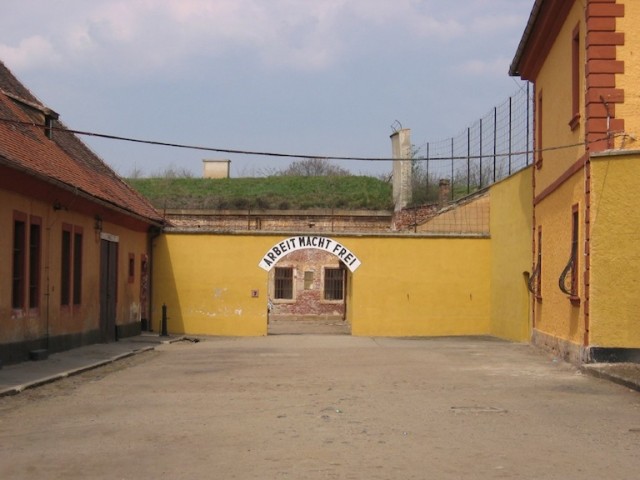Memory and the Holocaust

The problem
At a highly respected Holocaust museum, my students and I were listening to a survivor give her testimony. Her story, however, was not plausible. She talked to us about being in the propaganda film in Terezin. She then talked about her transport to Auschwitz and the night of the horrible gassing of the Roma (gypsies). She described that night in terrible detail. The problem? The Nazis began the production of the propaganda film on September 1, 1944 - and the Roma were gassed in Auschwitz on August 2, 1944.
One of the most moving films that I have seen is Bach in Auschwitz, a documentary about the women's orchestra in Auschwitz and their director Alma Rosé. In one scene, two former members of the orchestra return to put flowers on the bunk of their former director, but they end up arguing about which side of the room she was on. The stronger personality prevails and the other woman shakes her head in disbelief.
Interested in this topic, I have spent hours trying to find research on the topic. Many articles focus on the story of Binjamin Wikomirksi, the author of the "fictitious autobiography" Fragments, in which he tells of his childhood suffering in the Holocaust - which never happened. But there is little research available on Holocaust survivors' testimony; in fact, there are simply a lot of articles that attack the psychology of "reconstructive memory" as an assault on the memory of this horrible event.
Research and theory
A study by Wagenaar & Groaneweg (1990) looked at the testimony of 78 witnesses in a case against a man accused of Nazi crimes in the Netherlands. The testimonies were collected in the periods 1943–1947 and then again in 1984–1987. A comparison of these two periods revealed the amount of forgetting that occurred over 40 years. Results showed that camp experiences were generally well remembered, but specific and often essential details were forgotten. Among these were forgetting being maltreated, forgetting names and appearance of the torturers, and forgetting being a witness to murder. Apparently, intensity of experiences is not a sufficient safeguard against forgetting - but it does not discredit the atrocities of the Holocaust.
According to what we know from cognitive psychology, it should not be a surprise that there are distortions in memory.
- Many survivors did not tell their stories for many years. The Holocaust was not really discussed openly until the 1960s in the West. In Central Europe, it was not until after 1989! I have watched survivors tell their stories for the first time. I have seen them react to the retelling of their own stories. There is no doubt about the credibility of their stories, but are they 100% accurate? Most probably not.
- Many survivors have watched many films about the Holocaust. This could lead to the misinformation effect. One historian told me that there are many survivors remember being selected by Mengele, even though he was not there on their arrival in Auschwitz. This could be a detail included due to the images of selections in films.
- Many survivors have spent years sharing their stories in groups of other survivors. Their stories have become a "collective story", where individual details may be shared, rather than having actually been experienced.
One of my former principals was a Vietnam War veteran. I had him in my class to share his experience with my students. At one point in his narrative, he stopped and said, "At least I think that is what happened to me. I am not really sure if that is my story, or someone else's."
In TOK we are always asking "how do we know what we know?" In looking at autobiographical testimony, we have to recognize that memory distortion cannot be ruled out. Acknowledging that memory distortion is a normal part of human existence does not challenge the existence or the horror of the Holocaust; instead, it challenges us to use a variety of sources to document what happened, and more importantly, it reminds us that the survivors of the Holocaust were normal human beings.

 IB Docs (2) Team
IB Docs (2) Team
